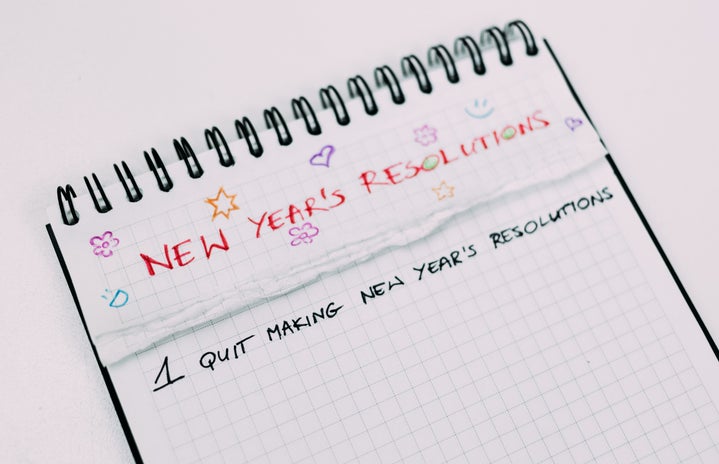The countdown ends, and the clock hits 12.
It’s 2024: a new year and a new beginning. A perfect excuse to use the traditional phrase of “new year, new me.” And I say traditional because everyone had this at one point. A saying we have trained ourselves to believe in and we develop our resolutions around them.
Resolutions are a must when starting a new year. And if you don’t make yours at the beginning of the year, it’s more difficult to make one in the middle of a year’s hectic nature.
In 2024, three resolutions predominated: improving fitness, finances and mental health ranked among the top three resolutions according to a survey conducted by Forbes Health of 1,000 U.S. adults.
However, the root of their popularity rests in their rate of success. Because let’s be honest, they often stand as uncompleted chores we wish to complete but fail to fulfill.
So why does this happen? Is it a lack of motivation? Is it the absence of motivation?
Maybe the answer to these questions relies on our resolutions and the different tasks we do to attain them. Because believe it or not, you might have been unconsciously setting yourself for failure.
A new year might be a signal for the 365 days ahead of you, full of possibilities and endless mistakes. And though we often believe a new year is a clean slate, this mindset takes away your availability to look at the whole picture.
The clock hitting midnight on December 31 is just a piece or pixel that comprises a whole image. A new year does not mean a new you. Instead, it takes upon the previous years’ progress and builds from it.
So, stop believing in the “new year, new me” mantra, especially when talking about resolutions. It’s time to set new goals that acknowledge your current state and the long journey ahead of you.
For instance, if you want to improve fitness, start with little things before committing to a full routine. This year could just be you trying new fitness classes or ways of working out that can lead to a full routine to build upon next year.
So, think about it before you try to commit to a new year’s resolution. Things don’t change in a day. Instead, habits take time to stick.
And if you want to turn your new year’s resolution into a habit, think about the long run, because if you don’t, you might unconsciously be setting yourself up for failure.

